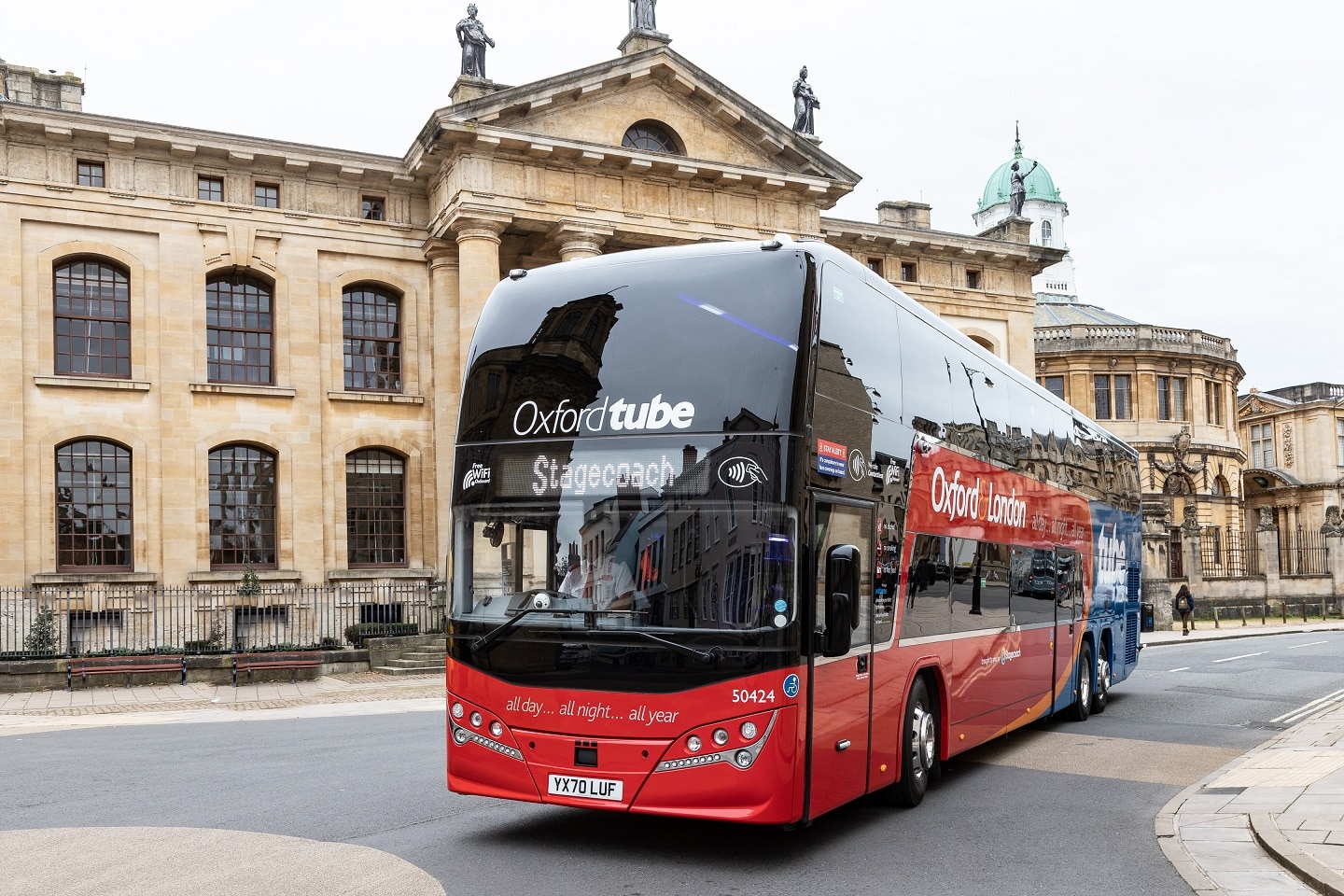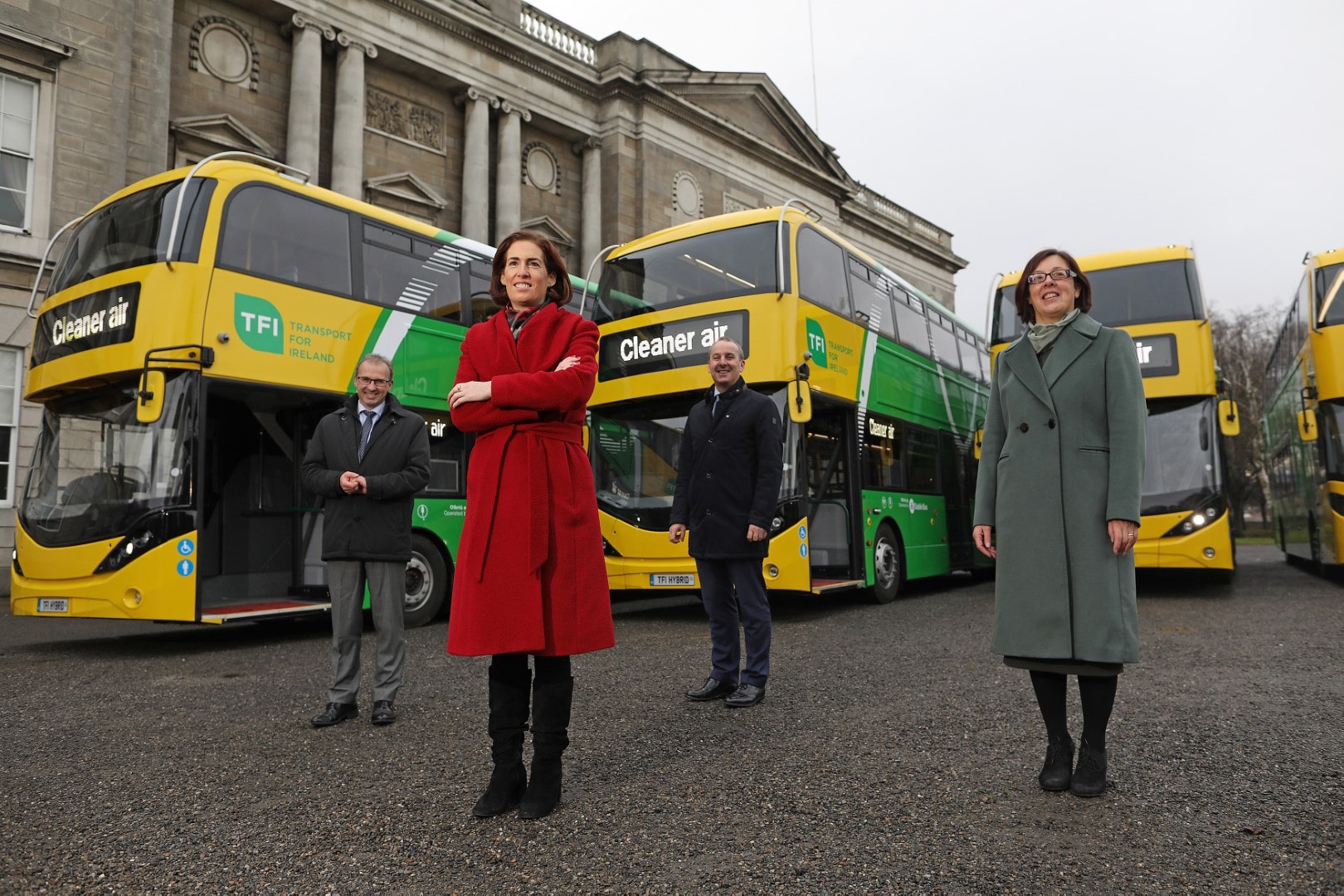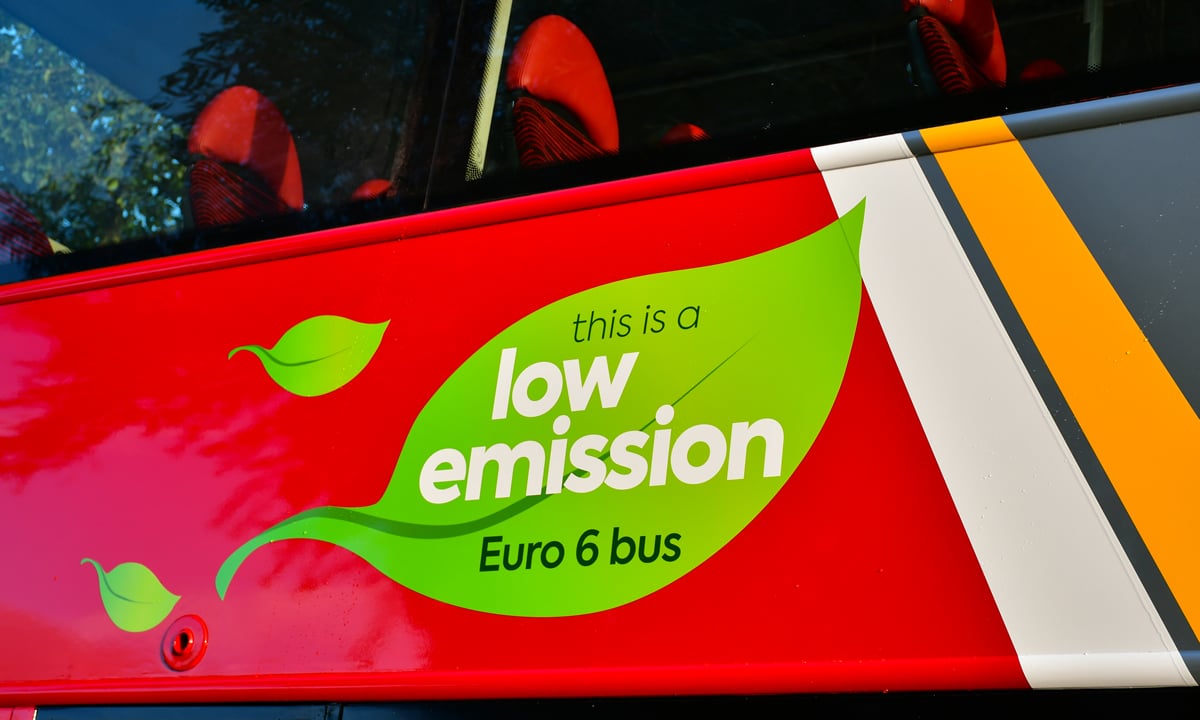An eye-catching announcement earlier in 2020 was that five of the 34 Plaxton Panorama-bodied Volvo B11RLEs ordered by Stagecoach for the Oxford Tube will come with roof-mounted solar panels. The panels will reduce fuel consumption and CO2 emissions. How do they do that in a coach or bus application?
Supplier Trailar has already fitted solar panels to 18 buses with Go South Coast. In addition, a Flixbus-liveried VDL FDD2 double-decker owned by Dutch operator Kupers Touringcars that runs between Dortmund and London is equipped with the technology.
Contrary to what might be expected, the UK climate works well for solar panels. Predictably, a short winter day will see less energy generation than a long day in summer. But bright sunlight is not mandatory for the panels to do their thing. Instead, irradiance is.
Solar panels in a coach application, as well as bus
In the coach world, double-deckers – with their unencumbered roofs – are particularly suitable for solar panel fitment. Buses are, too. The air-conditioning unit on single-deck coaches prevents the entire roof area from being covered on those vehicles. But a ‘mat’ approach – where a 3mm thick, flexible solar panel adheres to the roof – allows that to be negotiated in a practical manner.
Once the panels are laid, they are connected to the vehicle’s electrical system. A routine hose down or a trip through a wash is enough to keep them clean.
Trailar Marketing Manager Matthew Summers points out that the energy consumed by customer amenities fitted to vehicles does not appear by magic. It must be generated. Ordinarily that is done by the engine driving an alternator.

“As more such items are fitted to coaches and buses, there is more opportunity to provide solar energy and reduce the requirement for electrical energy from the alternator that ultimately comes from the diesel tank,” he says.
“With Stagecoach, we will fit various sensors across the coaches involved to understand what the main draws of electrical power are.” Couple that to Trailar’s smart charge controller and utilisation of the alternator can be reduced. That removes load from the engine and improves fuel consumption.
Battery life can be extended by use of the panels
Trailar Managing Director Aaron Thomas says it is likely that a coach or bus application should be able to generate 600kW/h of energy per year as a minimum through solar panels. On a 14.5m Panorama, that figure should be comfortably higher.
Such a total is not simple to quantify against a diesel consumption figure, although Trailar provides an online platform as part of its package. It includes the ability to view ‘solar savings’ in terms of litres of diesel and tonnes of CO2. Stagecoach expects the Panoramas’ solar panels to reduce annual fuel use by 1,500 litres per coach. Flixbus claims that the panels fitted to the VDL FDD2 have cut consumption by 7%.
While reducing diesel use and CO2 emissions is the most obvious benefit to vehicle-mounted solar panels, Mr Thomas points out that they also positively impact battery life.

When the engine is off, onboard systems continue to consume energy. When it is restarted and the vehicle is driven, the battery recharges quickly. A solar panel instead allows for a consistent ‘trickle charge’. That approach prolongs battery life.
Vehicle-mounted solar panels are not quite as efficient as those that are mounted in fixed locations. The latter deliver an efficiency of 22% compared to 19% for those on vehicles. However, solar panel OEMs invests a significant annual sum to increase that figure year-on-year.
Solar panels also suit for battery-electric buses
Solar panels already feature in the operation of battery-electric buses where they are used as part of depot ‘farms’ with stationary batteries to generate stored energy for vehicle charging.
But for solar power, the zero-emission sector also delivers a similar opportunity to diesel-powered coaches and buses. Trailar is talking to a UK manufacturer of battery-electric buses about its panels. It is also in dialogue with a local authority that is part of a submission to the government’s All Electric Bus Town project.
Mr Thomas notes that solar power could contribute to a modest increase in the range of battery-electric buses. As an alternative, it could go directly towards powering onboard auxiliaries. Their draw is critical to range calculations.
He points out that equipment such as USB charging points, lighting and, in the future, a move towards rear-view cameras in lieu of mirrors, all impact the energy consumed by an electric bus.
Raising awareness of solar panels for coach and bus is next
Increasing the commercial viability of solar panels in the coach and bus market is key to their wider adoption. Trailar is a member of LowCVP as part of its efforts to raise awareness of the concept. It was represented at October’s Coach Interest Group kick-off meeting and is part of the Bus Working Group.
Installation of solar panels to a coach or bus takes around a day. That includes integration with the vehicle’s electrical system. External cables are within trunking to protect them from damage from trees and other obstacles. Software can be updated as required to ensure that the controller takes advantage of developments. Trailar says that the panels will last the life of the vehicle.



























